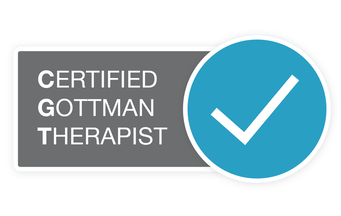Co-dependency is a behavior that is often developed in childhood as a response to growing up with caregivers who were inconsistent with their attention or support. When children don’t have consistent parental behaviors that can be relied on or feel conditional, they often develop coping skills that place the needs of the adults above the child. Children develop these responses in order to survive childhood and as a way of trying to keep in their parent’s favor so they can get their basic needs met. Unfortunately, these behaviors become engrained, and the child continues to use these coping skills even when they are adults.
Signs of Codependency
1. “Saying yes when you really mean no.”
Example: If you really DON’T want to go fishing but you say you will go along with your partner because you are afraid/worried/scared that if you aren’t agreeable or want to do things your partner wants-they will stop loving you or wanting to do things with you.
Flip side: “Saying no when you really mean yes”
Example: Wanting to seem agreeable and easy to be with so you act as if you don’t have any preference or opinion about where you go, what you eat, how you spend your time.
When you don’t live your life in alignment with who you really are in order to manage someone’s opinion of you, that is a sign of co-dependent behavior.
2. “Treating yourself and others as if their needs are more important than your own.”
Example: You made yourself dinner and you are starving, but find out your partner is hungry. You give them your food because it feels more important to make sure they are not hungry. Instead of offering to share, make them something else so they can eat at the same time, or suggest they make themselves something to eat. Your needs are EQUALLY as important as your partner’s.
3. “Not taking time for self-care.”
Example: You think that you need to take care of your partner and you don’t have time to go to the gym, get a massage, or just sit down in the backyard and read a book because there are things you could be doing for your partner to make their lives easier. In fact you feel guilty taking time for yourself when you could be doing something for your partner.
On the surface, this seems like a noble thing to do, however, it’s really a sneaky way to try to create a sense that you are indispensable to your partner because of all the “things you do for them”. Your relationship value shouldn’t be about what you do but who you are.
4. “Not offering opinions, not disagreeing, or presenting opinions different than your partner’s.”
Example: You don’t agree with how your partner speaks to you and you don’t let them know it feels disrespectful or hurts your feelings. This is often a behavior done to avoid causing your partner distress or finding a reason to want to break up. You avoid speaking up because you fear rejection-that is an example of codependent behavior.
5. ”You feel like you are being victimized by your partner’s behaviors and don’t believe you have the power to decide what happens to you in the relationship.”
Example: “You say things like, I don’t get have any say in when we will have children or buy our first home”. Treating yourself and your partner like they have all of the decision-making power in a relationship is a sign of co-dependency.
6. “You feel like you always give more in relationships than your partners do and feel unappreciated and unseen. You also assume you are doing something wrong and need to change something about yourself to make relationships work.”
Example: You say things like, “I loved her so much that I always made sure that I was available whenever she needed to talk or wanted to get together. But she still broke up with me no matter how much I gave. I must not be working hard enough in the relationship so I will do more in the next one to make sure they don’t go away.”
You are teaching people that you will always be available and they don’t need to worry about your needs or make sure they check in with you about what you want.
7. “When a relationship ends, you assume you weren’t good enough and it was your fault it ended because of some deficit in you.”
Example: Your first reaction: “Why wasn’t I good enough for him/her?” You fixate on this and roll it over and over in your mind for months. It never occurs to you to try and figure out what was wrong with the other person or why the two of you weren’t a good match.
When you don’t gain perspective on the other components that went into a relationship ending and only hold yourself responsible for its success, that is co-dependent behavior.
8. “Discomfort being alone or without your partner. Wanting to spend all of your time with your partner.”
Example: Getting mad or disappointed that your partner wants to spend downtime by themselves or a night at their place without you. You feel uncomfortable when your partner wants to spend an evening with friends and this means you will be by yourself while they are gone. If you can’t imagine how you would fill your time or even dread being by yourself, this is a co-dependent behavior.
These warning signs of codependency in a relationship were also discussed in an Insider article by Ashley Laderer, the 7 sneaky warning signs of a codependent relationship, according to relationship therapists. The same article was also published in Business Insider and Newsbreak.








